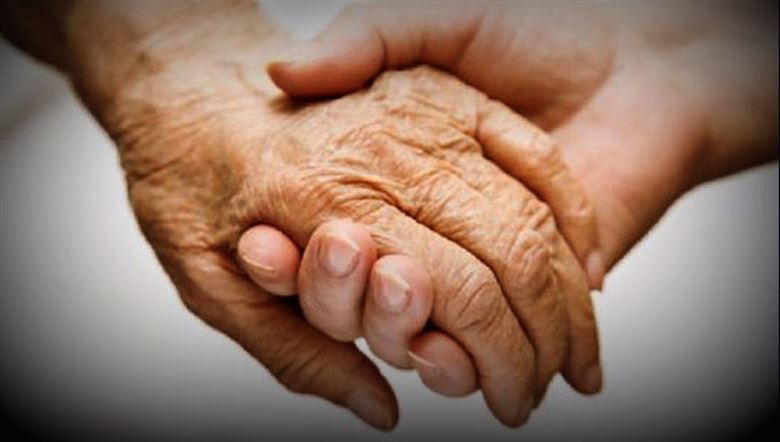WARNING: THE AUTHOR IS GOING TO DISCUSS ASSISTED SUICIDE IN TERMS THAT SOME MAY FIND OFFENSIVE
BACKGROUND:* Some key points of the Carter vs Canada Decision of February 6, 2015 by the Supreme Court of Canada are:
… In striking down the old law respecting assisted suicide, the justices clearly explained why the ban contravenes our Charter of Rights and Freedoms. The prohibition, the court wrote, forces patients to endure intolerable suffering against their wishes and denies them autonomy over their bodies.
… The judgment does more than just outline why the old law, which expired on June 6, 2016, is inhumane. It serves to establish choice in dying as a right for all Canadians.
… The Supreme Court ruled the old law infringes on Canadians’ right to “life, liberty and security of the person” outlined in the Charter. Their reasoning takes into account binders of evidence-based research from countries and states where assisted dying is legal. And it addresses the heartbreaking personal stories of Canadians who were denied choice.
* As explained by DWDC(Dying With Dignity in Canada)
Consequently, on June 17, 2016, the Federal Government created and passed C-14 — legislation permitting Medical Assistance In Dying(MAID) A real first for Canada and a beginning for Canadians to legitimately consider “end-of-life” factors as parts of their lives .. and as guaranteed by the Canadian Charter of Rights and Freedoms. Unfortunately, MAID is a failure by design.
MAID excludes many people facing an overly long, prolonged process of dying because our legislators feared the reaction of some religious organizations and the protective cautions provided by Canadian and Provincial Physician Associations. Our legislators set aside the wishes and voices of more than seventy percent of our population and our right to choose death as defined by the Supreme Court in its now famous, unanimous ruling in the Carter vs Canada Decision of February 6, 2015.
There are many examples of those being denied MAID and their weary supporters are scrambling to get their cases before the Courts in the battle to get justice. They are being fought by lawyers employed by various levels of government – at tax payer expense – and lawyers employed by church groups and physician associations. It will take a lot of time and a lot of money – neither of which the patients and their supporters can afford.
Let’s take one case as an example. It’s my own since I know it best.
Almost three years ago, I was assessed with MCI – Minor Cognitive Impairments – the precursor to one of thirteen forms of dementia. They are all defined as non-treatable, progressive declines in mental ability leading eventually to a prolonged, difficult process of dying. As of Dec 16, 2016:
- dementia is one of the top ten diseases in Canada(more than breast/prostrate cancer combined);
- 564,000 Canadians are currently living with dementia;
- in 15 years, 937,000 Canadians will be living with dementia;
- currently, 1.1 million Canadians are affected directly or indirectly by dementia;
- 25,000 new cases of dementia are diagnosed every year;
- 16,000 Canadians under the age of 65 are living with dementia;
- 65% of those diagnosed with dementia over the age of 65 are women; and
- $10.4 billion is the annual cost to Canadians to care for those living with dementia.
Of all forms of dementia, Alzheimer’s is the most common – claiming seventy percent of all cases. After three years of my MCI and feeling and experiencing a steady decline of my mental abilities, I have accepted the strong likelihood of eventually being classified as having Alzheimer’s(and if it’s not Alzheimer’s, then the end result will be the same – a long, difficult process of dying).
So I’ve begun preparing: moving from house to apartment; revising wills and powers-of-attorney as needed; reviewing/revising investment plans; meeting with family, friends and neighbours to discuss needs and possibilities. The list goes on as my abilities decrease — driven by the desire and the necessity to make it as easy as possible for my wife to provide the care I undoubtably will require.
There are three major stages of progressive decline: mild – moderate – severe(or terminal if we can disregard political correctness). I’m at the beginning of the mild stage – four to six more years of easy life. The moderate stage might last for another three or four years. It’s the severe stage that creates the problem. It may last for three years and it might end after one year. But however long it may last .. it is too long.
Here’s the first design flaw: the use of MAID requires a “death in the foreseeable future”. What is foreseeable? In some cases, some physicians believe it is a week or two .. or maybe a month in cases of a physical disease like cancer. Some more enlightened are stretching foreseeable to a year. Mental impairments are disallowed and degenerative nerve/muscle diseases just take too long.
Now, Alzheimer’s doesn’t fit the bill: it’s not physical and not a nerve nor a muscle disease. My brain is simply shrinking — hardening and solidifying – and destroying nerve connections which control all thinking and feeling as well as bodily functions. By the time I progress to the severe stage, complete dysfunction – sufficient to stop my beating heart or breathing – may take a year or more. And I won’t qualify for MAID.
Here’s what I see in my foreseeable future. I want my death to occur at the beginning of the severe stage of Alzheimer’s and not the end. The following, common conditions of Alzheimer’s are the beginning of severe and when any one of them occurs, I want MAID:
- When I am unable to recognize and/or cognitively and adequately respond — with appropriate emotion and thought – to family members, care providers or friends;
- When I become persistently abusive – either verbally and/or physically;
- When I become frequently lost or wander without awareness or knowledge of my whereabouts;
- When I require physical restraints and/or a locked door facility;
- When I present the symptoms of acute depression or paranoia or melancholia or elective muteness;
- When I frequently experience visual, auditory, olfactory or tactile hallucinations;
- When I become frequently incontinent and require assisted personal cleaning; or
- When I am unable to eat, clean or dress myself without assistance,
I believe I am stating, clearly and without any coercion or pressure, exactly the conditions under which I cannot tolerate living and I wish to die – easily and comfortably — with such assistance as may be provided by medical practitioners. But MAID, as it’s being practiced won’t allow my assisted death and will condemn me to a remaining existence(not life) which I consider to be absolutely abhorrent.
Now, let’s consider the second major failing of MAID. Consent to provide assisted death is contingent upon the patient being sufficiently mentally competent – at the time of such a request. In my case, I am presently able and willing to make a request but it will be denied .. because it is requested too soon. Why .. because of that old boon, my death does not fit the parameters of “foreseeable death.” My natural and abhorrent death is years away.
Mental competence is also required and it must be so ascertained at the moment the practitioner is ready to provide assisted death becauseI have the right to change my mind. If, at the time of asking, I am adjudged to be mentally incompetent, I can neither affirm nor decline my request for assisted death and any such assistance will be denied.
Without question or uncertainty, it’s a complete failing: I cannot access MAID with an ‘Advance Care Request or Directive’ while I’m still mentally competent because it’s too soon. And if we wait until conditions of the end stage are presented, I will be judged as mentally incompetent.
The framers of C-14 – those who established lawful access to MAID — with all their conscientious concerns, have consequently denied me – and thousands of other Alzheimer’s patients – a denial of our “right to life, liberty and security of the person” as defined by the Supreme Court of Canada.
MAID is a design failure.
Prepared by ..
(Dr.) Ron Posno, B.A., M.Ed., Ed.D.
London, Ontario, Canada
POST SCRIPT …
Is MAID a complete failure? No, it’s not! It’s likely the most significant and compelling health related legislation since the introduction of universal health care. However, it’s not perfect and this paper was prepared to draw attention to a major failing in its implementation. Since we’ve experienced more than two years of MAID and more than 3,000 assisted deaths, date has been collected and an analysis has been promised by the end of December, 2018. (Unfortunately, no suggestions nor revisions have been requested.) Without any evidence of untoward practice, more physicians are ready to consider MAID and maybe the fears of our legislators have lessened. Nurses, with their more ‘hands-on’ provision of patient care have always been ready for MAID with more than eighty percent of their members voting in favour.
Let’s see if our legislators can reach further ..




